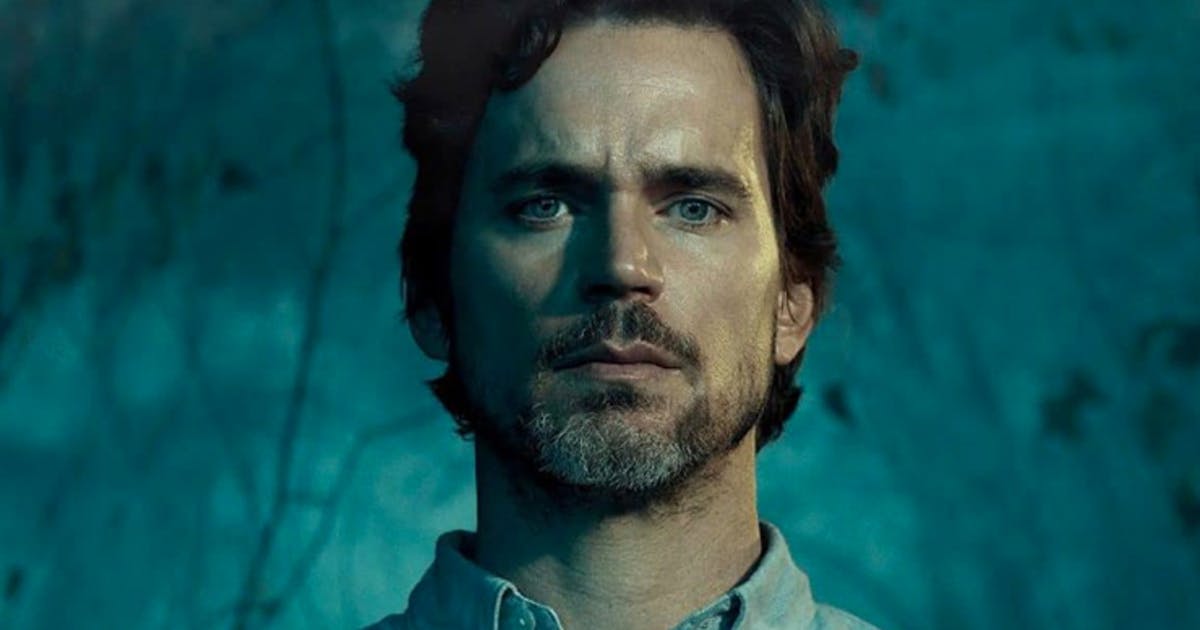
 Each season of The Sinner has centered around a single, though multifaceted, crime in which Detective Harry Ambrose (Bill Pullman) is the only recurring character. Various actors reappear each season but with new roles (similar to anthology television shows like American Horror Story). Season 3, which originally aired on USA Network in 2020, was released this month on Netflix.
Each season of The Sinner has centered around a single, though multifaceted, crime in which Detective Harry Ambrose (Bill Pullman) is the only recurring character. Various actors reappear each season but with new roles (similar to anthology television shows like American Horror Story). Season 3, which originally aired on USA Network in 2020, was released this month on Netflix.
This latest season of The Sinner tells the story of Jaime Burns (Matt Bomer), an expectant father, who can no longer hide his existentialist impulses. It is no surprise that Burns is an academic in the humanities, and his interest in literature and philosophy, as well as his recently rekindled relationship with his college friend Nick (Chris Messina), has a significant effect on the progression of his dangerous worldview.
Two other central figures in this season are Leela Burns (Parisa Fitz-Henley) and Sonya Barzel (Jessica Hecht). Leela, Jaime’s wife and the mother of his unborn child, discovers upon meeting Nick that she doesn’t actually know her husband at all. And Sonya, a reclusive artist, is thrust into the story simply because an accident occurs on her property.

The acting is excellent, and, what’s peculiar, is that we don’t actually learn much at all about these characters. Their life stories, as we know them, can be recalled in a few sentences at most. Yet, they never come across as stock characters. Rather, they are just bare enough that they invite us in, to understand what haunts them.
While no prior viewing of the series is required to enjoy this latest season, there is a particular breakthrough that transpires with Detective Ambrose’s character; in Jaime he finds an odd understanding, a kinship. This connection illuminates the Detective’s complexity in a way that prior seasons have only hinted at. And although this thread between Ambrose and Jaime is clearly the strongest, Jaime—despite his pride and rage and murderous intent—manages to subtly relate to each of the individual characters. In him, they see what they can so easily become if they choose “to go to the edge,” as he so often puts it.

Although the gritty, existential detective drama is nothing new (e.g. True Detective), this most recent season of The Sinner is akin to receiving whiskey, neat, straight into the vein, whereas other shows of this kind have been diluted with a generous amount of water. The conversations among the characters—particularly between Jaime and Nick—are heady, a gift to those who find themselves captivated by philosophers like Albert Camus and Søren Kierkegaard.
The throughline in each episode is that if one stares death in the face and surrenders to fate, then they conquer fear. This is the quest of Nietzsche’s Übermensch, and it is what Jaime and Nick aspire to become. We watch as a simple paper fortune teller dictates their movements—while standing on a bridge, while driving, while sitting in a bar full of strangers. If there isn’t a higher power, they wager, then life is simply random. And what does one do with that terror?
Detective Vic Soto (Eddie Martinez), a former Marine, tells Detective Ambrose that faith is what saves him from that terror, from total despair—a despair that he recognizes in Jaime. However, Nick and Jaime’s answer is to become their own gods and create their own moral code. But this doesn’t, in fact, save Jaime from fear as he so hopes it will. Instead, he becomes obsessed with death, increasingly frustrated at how people can just ignore the enormity of it.

Jaime, in conversation with Sonya, asks, “Is anyone actually watching? There is no meaning. There is just the before and the after. It all just is. And once you realize that, everything becomes so clear. It’s like staring straight into eternity … We’re all in that place from the day we’re born. We’re all just too scared to admit it.” To which, Sonya proposes, “Maybe we’re all hypocrites. Maybe it’s the only way through a life.”
And then it happens. Ambrose, finally, shoots Jaime. And he is terrified. The scene of him lying on the floor bleeding out is devastating. The fear palpable, as the once steely-eyed Übermensch cries, “I’m not a bad person. I’m not a bad person.” The Detective offers half-hearted, empty phrases like, “You’re not alone,” and, “Everything is going to be okay.” But what does that even mean?
Sonya later asks Ambrose what Jaime was like at the end. He quietly replies, “Scared.” And then they cry.

This is dark television. Somber and meaningful. And The Sinner portrays that beautifully with its quiet, haunting score, the muted colors, the ongoing sense of uncertainty and dread. It’s difficult to watch more than one or two episodes at a time without feeling like you yourself are out on the edge, staring into the abyss, daring it to stare back.
The Sinner forces us to reckon with our own views on free will, fate, the sweet hereafter–so consider yourself warned. Be ready.
The Sinner: Season 3
Credits
- Director: Andrew McCarthy
- Writers: Derek Simonds, Hannah Shakespeare, Nina Braddock, et al.
- Stars: Bill Pullman, Matt Bomer, Jessica Hecht, Parisa Fitz-Henley, Chris Messina, Eddie Martinez
- Producers: Chris Arruda, Adam Bernstein, Jessica Biel, et al.
- Score: Ronit Kirchman
Credits (cont)
- Cinematographer: Radium Cheung
- Editor: Daniel A. Valverde
- Casting Director: Stephanie Holbrook
- Art Director: Michael Ahern
- Costume Designer: Lisa R. Frucht




![[REVIEW] ALIEN: ECHO BRINGS XENOMORPHS TO YA](https://geekd-out.com/wp-content/uploads/2019/05/thexenomorph-150x150.jpeg)